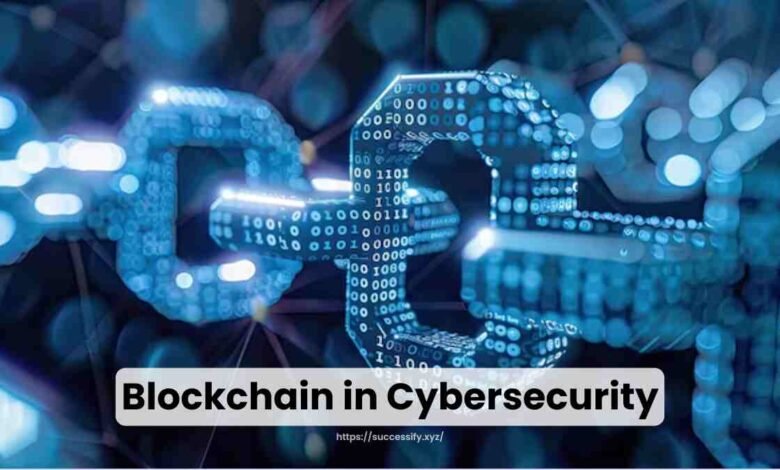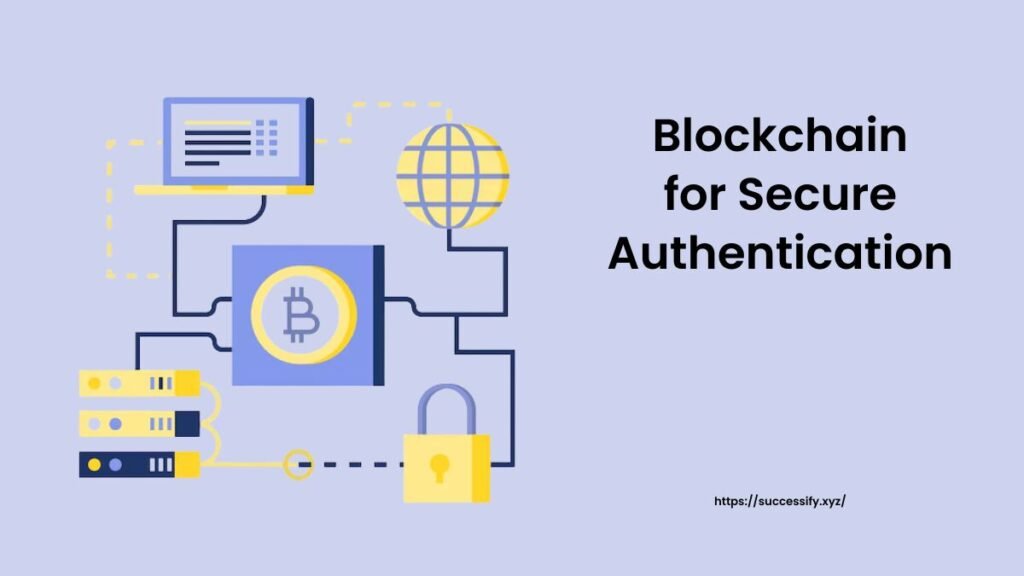Blockchain in Cybersecurity: More Secure Option for Now
Blockchain in Cybersecurity

Blockchain in cybersecurity is growing fast and growing still with emerging threats from cyberattacks. By day, the challenges of protecting data from malicious actors continue to challenge businesses, governments, and individuals. Here comes blockchain technology that has received recent identification with the promises it has to transform security in cybersecurity. This article explores how blockchain changes cybersecurity to give decentralized solutions for security and reinforce mechanisms to safeguard data.
What is Blockchain Technology?
Unlike the traditional systems that depend on central authorities. Blockchain’s decentralized nature helps no single entity to control or manipulate the data. Thus, it is superb for improving security as well because it eliminates single points of failure and maximizes transparency.
Decentralized Security Solutions
The most major benefits of blockchain towards cybersecurity protection is its decentralized nature. The traditional security systems put reliance on centralized databases, which are highly prone to hacking. On the other hand, blockchains are decentralized. So hackers find it very hard to hit one single point to get access with the data spread across many nodes. Large-scale cyberattacks might be achieved through decentralized security solutions, hence minimizing the risk. If hackers hack one node, then the rest of the network remains safe. A layer of resilience and robustness is thus added in cybersecurity efforts.
Blockchain-Based Data Protection
Secure or not? Data is a highly sensitive piece of information in the digital world. Smart attacks are surfacing, and therefore traditional encryption algorithms appear to fail in this case. Blockchain uses novel and advanced cryptographic techniques to store and protect the data. Each piece of information that is entered into a blockchain is encrypted and tied to the prior piece. So once the information has been written there, it cannot be altered or deleted. This means that if someone puts data into the blockchain, they can’t remove it or change it without the consensus of the entire network. Thus, that information, given its immutability, can be held secure against tampering or unauthorized access.
Immutable Ledger for Cyber Security
Blockchain is most useful in the arena of cybersecurity for ensuring immutability. This therefore leads to a permanent record of activities that cannot be tampered with. An immutable ledger keeps a record of every action performed within a system, creating an auditable and tamper-proof record of the whole series of events. This is great utility in auditing and monitoring situations. Furthermore, when there is a cyber-attack, the blockchain ledger will give a very clear and detailed history of what occurred before the breach and help organizations identify who committed the attack and where the weaknesses lie to prevent such events in the future.
Must visit: Snap Bloom
Blockchain for Secure Authentication

Authentication is one of the necessary aspects of cybersecurity. In most conventional systems, users gain access to sensitive data or systems by using a string of characters called a password and a string of characters called a username. This approach has been more vulnerable to such cyber-attacks as phishing, credential stuffing, and brute-force attacks. Blockchain provides a means of authenticating secure without the approach of traditional systems. Such firms can adopt decentralized identity verification systems when they use blockchain for the purpose of secure authentication. Unlike using a central database to keep credentials, blockchain may enable the creation of unique private cryptographic keys for every individual. These keys are stored on the blockchain, so an individual’s identity can be authenticated without having to use a password.
Blockchain in Identity Management
Identity management is an issue that is pertinent to the individual and the organization. Traditional identity management systems traditionally lean on centralized data bases that become an easy target for fraud. Blockchain approaches identity management in a decentralized way, which brings about more control to the user regarding who knows what about him. With blockchain, one can generate and control his digital identity in a self-sovereign manner without the need for third-party intermediaries. In this concept of ‘self-sovereign identity,’ a user can maintain a central database of his personal information. Instead, they can put their identity credentials in a blockchain for protection and encryption.
Key Benefits of Blockchain in Cybersecurity
The implementation of blockchain in cybersecurity has some of the most significant benefits that go with it. These key benefits include the following:
Increased Transparency: Blockchain has transparency on the whole record of transactions and activities, which may be easily tracked and monitored in case of suspicious behavior.
Low Possibility of Data Leaks: Due to its nature, the blockchain is one of those that are deemed difficult for hackers to access lots of information hence reduces the possibility of data leaks.
Data Integrity: This is due to its structure since blockchain ensures no unauthorized amendments have been made to the recorded information.
Limitations of Blockchain in Cybersecurity

Cybersecurity and blockchain technology share many benefits with each other, yet there are always limitations to everything. That is because the size of the ledger increases as more data are added into a blockchain, slowing down the whole system in the process, and it requires hefty computational resources. Second, the technology of blockchain is quite complex. Implementation of blockchain-based security solutions may require in-depth knowledge and expertise in the area, and this might sometimes be a problem in smaller organizations.
Conclusion
Blockchain is altering the way cybersecurity is approached with decentralized security solutions for data, its protection, and methods of authentication. The immutable ledger provides transparency and data integrity, making an organizational measure to strengthen their cybersecurity an ideal tool. Now, even if scalability and complexity are two of the issues that blockchain technology has, the benefits it proposes in cybersecurity outweigh these troubles. Cyber threats will evolve further as time goes by and blockchain will have a more significant role to play in the secure future of our digital lives.
FAQs
How does blockchain promote cybersecurity?
Blockchain promotes the security of the system through decentralized security solutions such that single points of failure do not exist, followed by using immutable ledgers to ensure data integrity.
What is blockchain-based data protection?
Blockchain can store as well as protect information safely from altering or tampering by anyone through data protection via encryption and cryptographic techniques.
How does blockchain improve authentication?
Blockchain strengthens authentication due to the use of cryptographic keys, as well as decentralized identity verification that reduces reliance on standard logins as well as usernames
What is an immutable ledger, and why is it important for cybersecurity?
An immutable ledger, or permanent, tamper-proof record of all transactions, is vital for cybersecurity purposes as it maintains transparency and ensures no data can be altered without authorization.
What are some challenges in using blockchain in cybersecurity?
Some of these challenges include scalability, complexity, and the possibility of the 51% attack on blockchain networks.
Read More: Influencer Marketing Agency






Great article! Blockchain has incredible potential to enhance cybersecurity by providing a decentralized, immutable ledger that can greatly reduce vulnerabilities like data tampering, fraud, and unauthorized access. Its ability to create transparent, verifiable records without relying on a central authority makes it particularly promising for areas like identity management and securing sensitive data. However, as the technology evolves, it’s important to also consider the scalability and energy consumption challenges that come with certain blockchain models. Looking forward to seeing how this space develops!